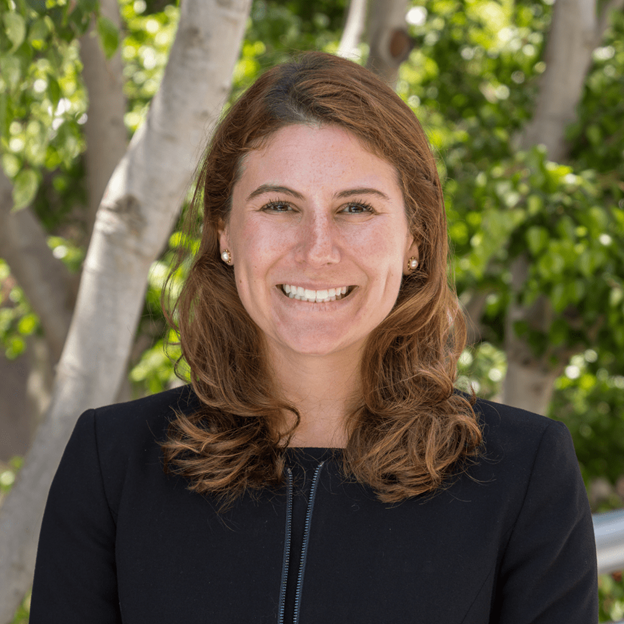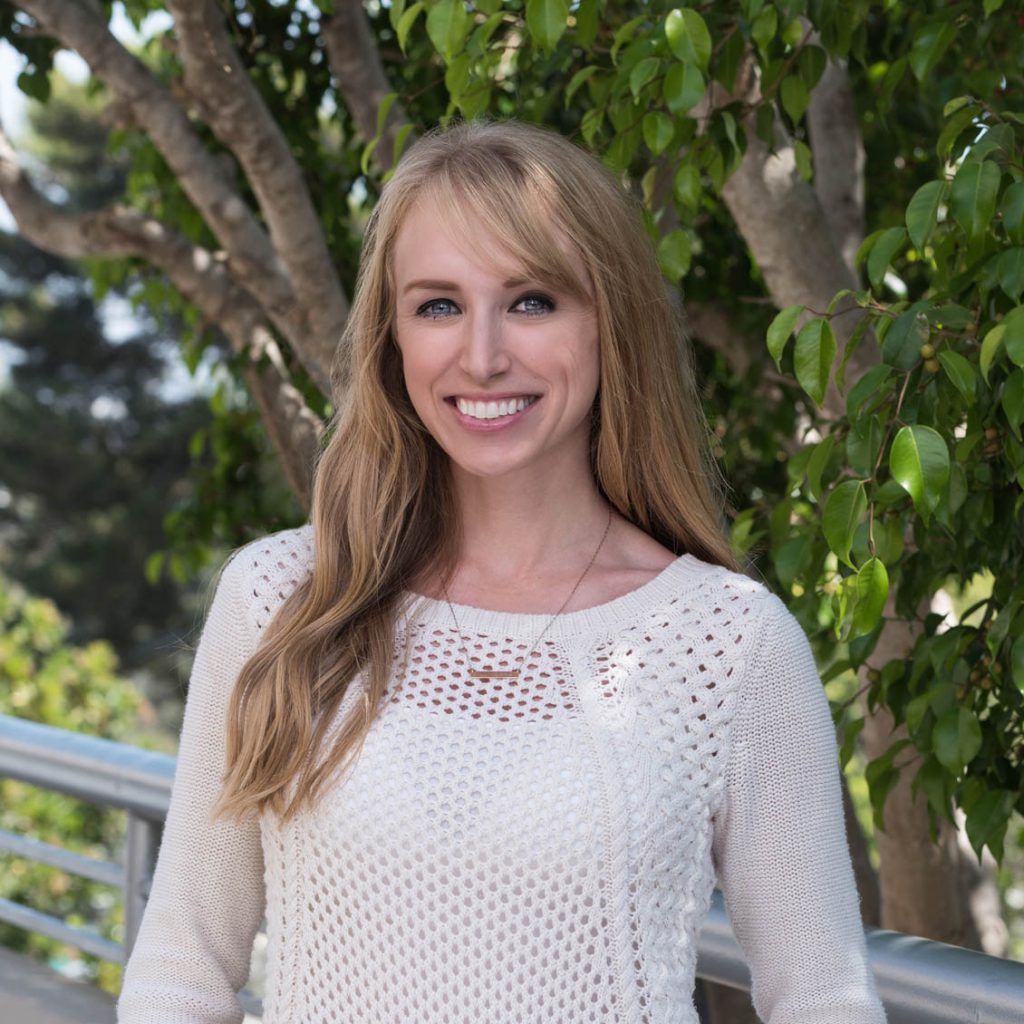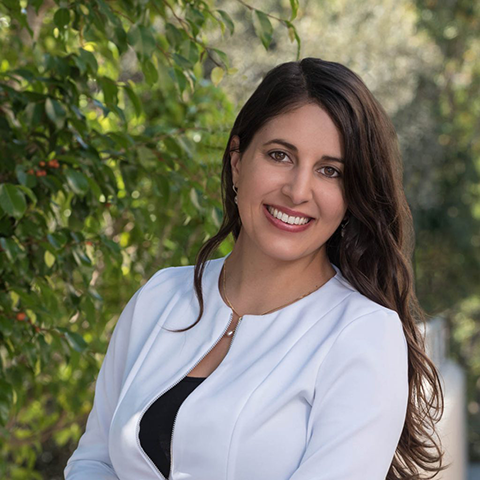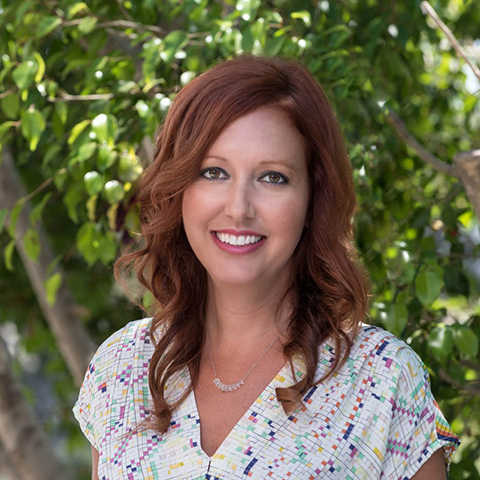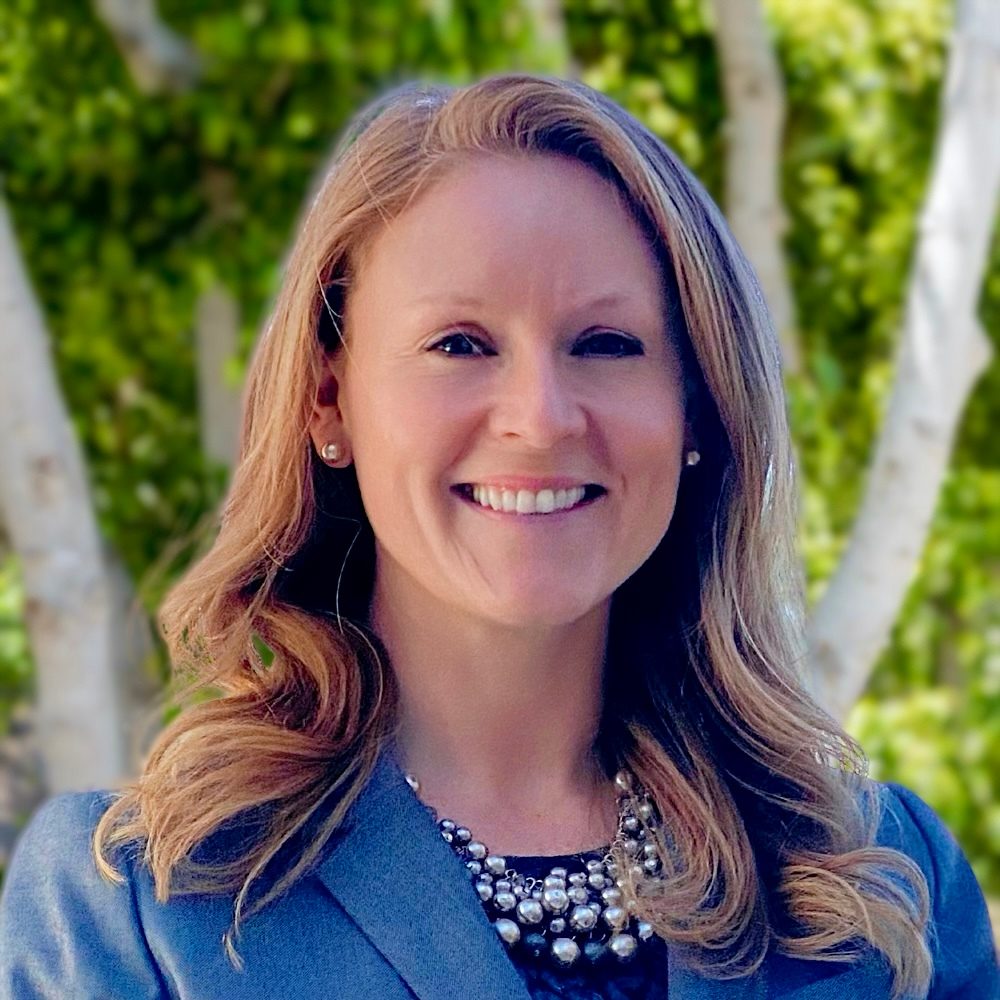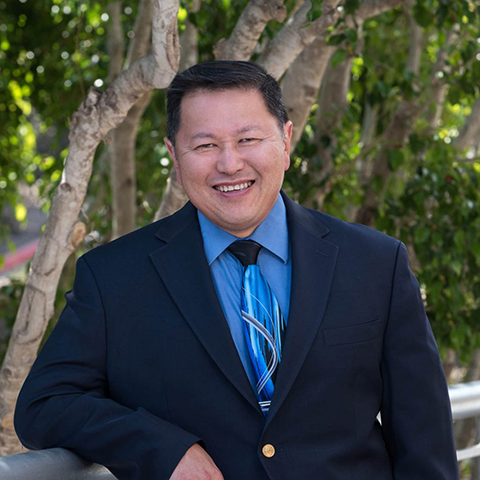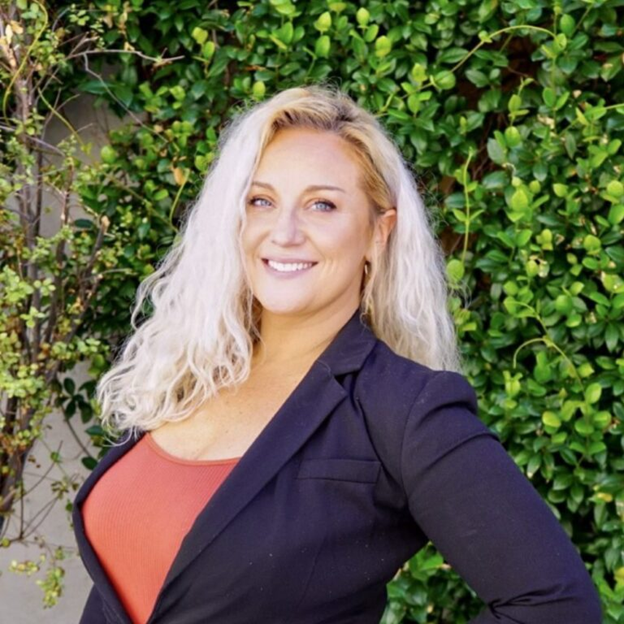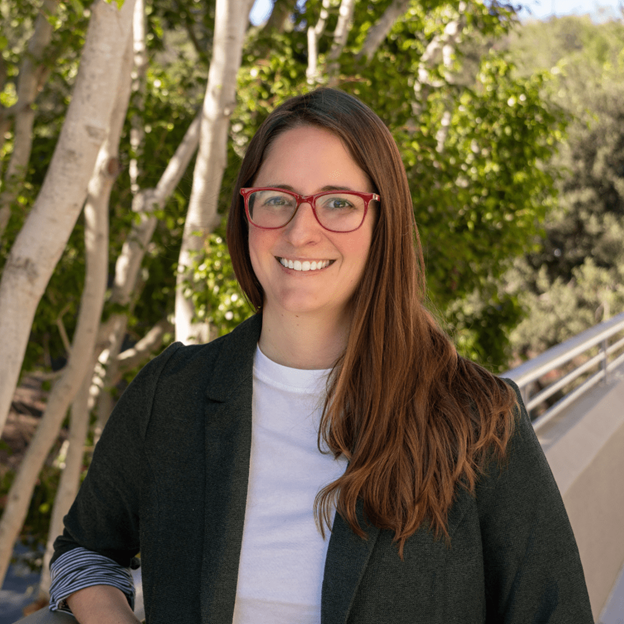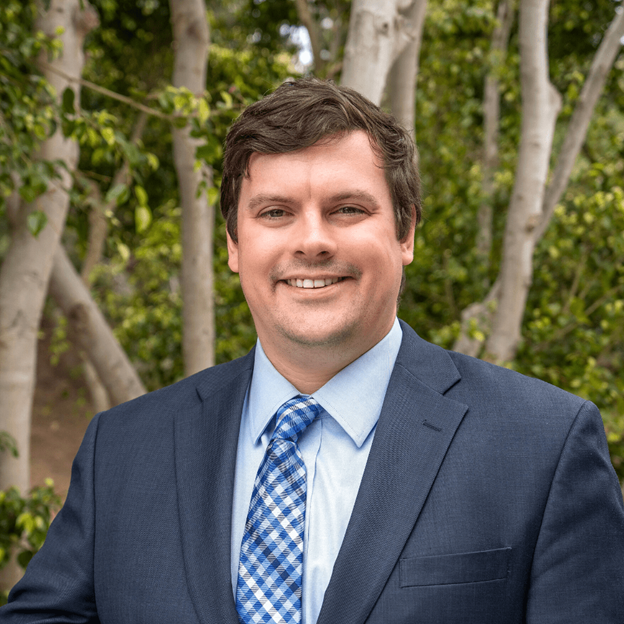|
What’s Inside: Meet Our Government Official of the Year; New March-In Rights Framework; California’s Budget Deficit; Updates on San Diego’s Housing Action Package 2.0; and more.
|
Biocom California’s Government Official of the Year
In November, Biocom California awarded Dr. Julianne McCall with the 2023 Government Official of the Year Award. This recognition is not given every year, but only when a government official has demonstrated an appreciation, understanding, and strong support for the life science industry. Dr. McCall, Governor Gavin Newsom’s Director of Precision Medicine in his Office of Planning & Research, spearheaded California’s response to the Biden Administration’s ARPA-H call to develop a nationwide health innovation network. California is fortunate to have a talented and energetic scientist who is dedicated to advancing health equity and elevating policy solutions leading our precision medicine efforts. We believe Dr. McCall’s work will anchor our state’s leadership position in many promising fields, including cell and gene therapy, and look forward to working with her to advance that leadership.
|
|
|
|
|
FDA Advisors Join Biocom California RAC Meeting
On December 12, our Regulatory Affairs Committee (RAC) had the privilege to hear from FDA advisors about the new Total Product Life Cycle Advisory Program (TAP) Pilot and how the pilot facilitates interactions between the FDA, industry sponsors, and external stakeholders such as patients, providers, and payers.
|
IP & Patent Law Committee Meeting on Trade Secrets
On December 13, the Biocom California IP & Patent Law Committee meeting featured a presentation on trade secret protections and litigation by Thompson Hines. The committee also had a robust discussion on the new march-in framework mentioned above. For more information, contact Rick White.
|
Biocom California Comments on C> FDA Draft Guidance
Biocom California submitted comments on the FDA’s draft guidance document, Quality Considerations for Topical Ophthalmic Drug Products. Thank you to our members for their valuable feedback!
|
Biocom California Continues Strong M&A Support
Biocom California has been involved in several high-profile efforts to demonstrate the importance of M&A in life sciences as part of our affiliation with PULSE. Last Friday, Biocom California CEO Joe Panetta was quoted in Politico about the importance of M&A: “The heart of our industry is mergers and acquisitions,” he said. Tyler Morris, director of capital development at Biocom California, participated in a webinar on the importance of M&A in life sciences.
|
|
California Faces Record $68B Budget Deficit
California is facing a record $68 billion budget deficit, the nonpartisan Legislative Analyst Office announced recently. Due to the state of emergency from storms earlier this year, state officials gave people and businesses until November 2023 to pay their taxes. This meant Gov. Gavin Newsom and the Legislature had to determine the budget without knowing how much money the state had to spend. Ultimately, their estimates were off by $26 billion, a major driver of the deficit. When combined with the economic slowdown California has been facing since last year, it leads to the predicted deficit of $68 billion. Newsom will present his plan to cover the deficit in January and negotiations with state lawmakers will continue through June 2024.
|
GO-Biz Now Accepting Applications for $164M in Tax Credits
The California Competes Tax Credit (CCTC) is an income tax credit available to businesses that want to grow in California. Biocom California was a key partner in creating this program and many life science companies have been successful in receiving a tax credit. Applications open January 2 and are due by Monday, January 22, at 11:59 p.m. PDT and application assistance is available.
|
|
|
|
|
Greater Los Angeles
|
Pasadena Approves Zoning Changes Initiated by Biocom California
Pasadena City Council voted in favor of a package of land use zoning changes aimed at expanding and attracting the life science industry. The revised regulations include greater allowances for building heights and use of roof space, removing distinctions between office and non-office uses for R&D, and easing restrictions on parking and open space requirements. Biocom California worked closely with the city throughout the process to write and approve these changes, and we are happy to have a hand in making the city more life science friendly.
|
Los Angeles Could Switch to Independent Redistricting
Los Angeles City Council unanimously approved an initiative to place an independent redistricting commission on the November 2024 ballot. If passed by voters, it would curb the City Council’s influence over their own district lines and implement a commission composed of 16 members and four alternatives who serve 10-year terms.
|
Lindsey P. Horvath Becomes Chair of the Board of Supervisors
One year after being sworn in to serve as supervisor for Los Angeles County’s Third District, Lindsey P. Horvath became the youngest-ever chair of the Board of Supervisors. Horvath wanted to acknowledge the importance that she has become the youngest to serve as chair because it highlights incorporating the voices and perspectives of young people.
|
|
|
|
San Diego
|
San Diego City Council Approves Housing Action Package 2.0
On December 12, San Diego City Council voted 7-1 to approve Mayor Todd Gloria’s Housing Action Package 2.0, which came back to council after passage failed last month. The package builds on the city’s ADU program, promotes the building of moderate-income housing, and incentivizes the conversion of empty shopping malls and large parking lots into housing, among other reforms. Biocom California staff spoke at council’s hearing in support of additional housing density and workforce housing. With the city being very behind on its state-mandated low- and middle-income housing goals, supporters are hopeful that passage will result in the building of additional homes that are attainable for all San Diegans.
|
Changes to San Diego County Board of Supervisors and City Council
Monica Montgomery Steppe was sworn in on December 5 as the County Supervisor for District 4, following her win last month for the seat vacated by Nathan Fletcher. Her arrival allows the board to take up issues on which it deadlocked before. Proposals on migrants, behavioral health, and pandemic relief funds are among the issues to revisit. At City Council, Montgomery Steppe’s departure may have the opposite effect, leaving the council vulnerable to 4-4 ties on future controversial issues. This was evident after Sean Elo-Rivera was narrowly re-elected Council President for a third term.
|
Eli Lilly to Open First Gateway Labs Location in San Diego
Biocom California member Eli Lilly announced plans to open its first Lilly Gateway Labs in San Diego—a coworking lab and accelerator space for biotech startups—in partnership with Alexandria Real Estate Equities, also a Biocom California member. The nearly 62,000-square-foot space will open in the first half of 2024. Our President and CEO, Joe Panetta, says that this is a big step forward in future growth opportunities for San Diego’s small companies. We look forward to working with Eli Lilly and Alexandria Real Estate Equities to make San Diego home to even more innovative startups.
|
|
|
|
Bay Area
|
|
|
Redwood City to Study New Tax Changes
Redwood City councilmembers directed staff to study two new tax initiatives that could come before voters next November—changing the city’s business tax to be based on gross receipts rather than number of employees and increasing the local property transfer tax. Dozens spoke out against the study, arguing the city should cut costs instead of increasing taxes. The study will inform whether the initiatives make it to the ballot, where voters would have the final say.
|
San Francisco’s Proposed Gross Receipts Tax Reform
The San Francisco Office of the Controller and Office of Treasurer & Tax Controller are looking to create a ballot measure in 2024 for gross receipts tax reform. If passed as proposed, the initiative would result in a tax increase for biotech companies in the city. The 2022 baseline for taxes paid by the industry in San Francisco was $7.6 million; the proposed for 2026 would be $12.8 million, an increase of $5.2 million or 68% total. Biocom California sent a letter asking the city to reconsider and work together to support the growth of the industry.
|
|
|
|
|
|
|
Upcoming Committee Meetings and Events
|
|
|
|
|
|
|
|
|
|
Zoe Bilis
Associate Manager of Regulatory Policy
Washington, D.C.
|
|
|
Emily Cassel
Govt. Affairs Events & Project Manager
San Diego
|
|
|
Laure Clark
Sr. Director, Federal Policy & Govt. Affairs
Washington, D.C.
|
|
|
|
Melanie Cohn
Sr. Director, Regional Policy & Govt. Affairs
SD, LA, Bay Area
|
|
|
Jimmy Jackson
Senior Vice President
& Chief Policy Officer
San Diego
|
|
|
|
Biocom California Advocacy
Biocom California is the largest, most experienced leader and advocate for California’s life science sector. Our public policy staff is strategically located in the Bay Area, Los Angeles, San Diego, Sacramento and Washington, D.C. We work with all levels of federal, state, and local governments to collectively pursue outcomes that benefit regional life science growth and contribute to a more innovation-friendly state. With over 28 years of experience, Biocom California works on behalf of more than {{{dynamic_content_1600}}} member companies statewide.
|
|
|
















